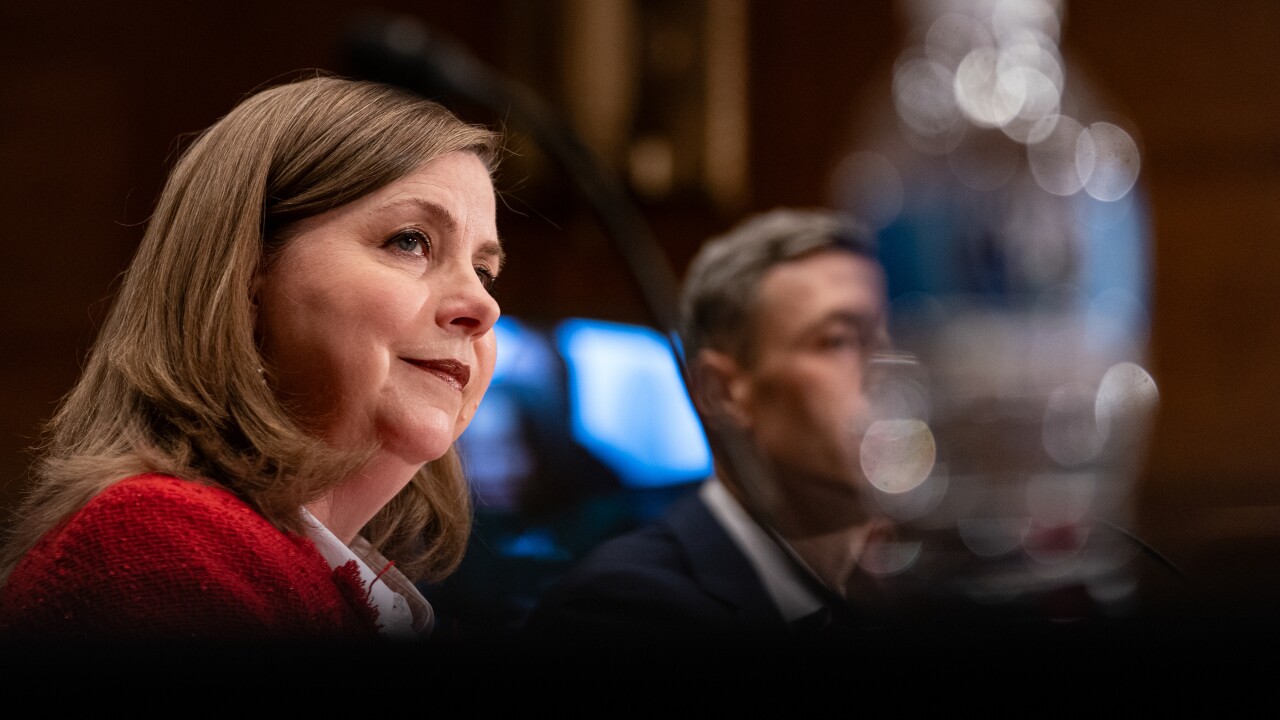It won’t be long before yield-starved consumers start demanding higher rates on their savings accounts. But it hasn’t happened yet — and some banks are doing a better job of reaping the benefit than others.
Low deposit prices boosted profits at some of the industry’s biggest banks, which kicked off first-quarter earnings season Thursday. JPMorgan Chase and PNC Financial Services Group reported higher net interest margins, capturing the benefit of the two latest rate hikes from the Federal Reserve. During conference calls with analysts, executives at both banks said consumers have not yet begun chasing higher deposit rates, following the moves by the Fed in December and March.
Other banks are still waiting for liftoff in their margins. At Citigroup, for instance, margins have declined over the past year, dragged down in part by excess cash balances, according to the company. Wells Fargo also reported lower margins, as the benefit of higher interest rates was offset by a range of factors, including higher long-term debt balances.
The mixed bag on margins comes as big banks are on the brink of boosting deposit rates for consumers for the first time in nearly a decade. With the Fed expected to raise rates as by many three additional times this year, big-bank executives say they trying to gauge how consumers will respond.
“We’ll have to wait and see,” said Marianne Lake, chief financial officer at JPMorgan, describing recent advances in digital banking that make it easier for consumers to move deposits. “We’ve obviously never really been through exactly this before.”
Margins at JPMorgan increased 3 basis points year over year, to 2.33%, while PNC posted an increase of 2 basis points, to 2.77%. Wells surprised analysts with an unexpected decline of 3 basis points, to 2.87%, while Citi’s margin fell 18 basis points, to 2.74%.

“There’s still a lot of cash out there, and it’s always looking to find a home,” said John Gerspach, the CFO at Citigroup. “We attempt to accommodate our clients as best we can.”
Overall, big banks posted strong quarterly results. Earnings were boosted by higher income from loans and improvements in the quality of once-troubled energy books.
Notably, compared with the previous quarter, which was marked by optimism at the prospect of pro-business policy changes in Washington, executives sounded slightly more cautious about their outlooks this time around.
“There will be ups and downs, wins and losses,” JPMorgan CEO Jamie Dimon said when asked whether the failure of Congress to repeal Obamacare raises doubts about other industry priorities. “It is a pro-growth agenda, with tax, infrastructure and regulatory reform, and that is a good thing, all things being equal.”
Here are other key takeaways from the first day of earnings season.
Credit card losses pinch profits
Higher losses in the credit card portfolios at big banks weighed on quarterly profits.
Net income in JPMorgan’s consumer and community bank — which includes a range of businesses, including auto, mortgage and credit card lending — plunged 20% during the first quarter from a year earlier, to $1.9 billion. Lower card revenue was a key driver of the decline.
In recent quarters, JPMorgan expanded its credit card business to court borrowers with slightly blemished credit histories. The move down the credit spectrum drove losses higher during the first quarter, as net chargeoffs in the company’s credit card book rose 20%, $993 million.
Lake emphasized during the quarterly call that JPMorgan — the nation’s largest bank by assets — is being compensated for the additional risk.
“We expanded our credit in a targeted way, but it wasn’t a significant expansion,” Lake said, noting that chargeoffs are still “very, very low” compared with historical levels, and well within the company’s expectations.
Citi also posted an uptick in losses in its credit card book, partly because of issues associated with its newly acquired portfolio from Costco.
Net credit losses in the company’s consumer bank rose 17%, to $1.4 billion. Those losses should come down in the coming year, Gerspach said.
“Costco conversion-related losses are now behind us,” he said.
Waiting on commercial lending to rev up
All eyes are on commercial lending during the first quarter, as the industry waits for the notable rise in business confidence that followed the presidential election to translate into greater lending growth.
PNC was a standout in business lending during the first quarter, as the company reported strong demand for equipment financing among large and midsize businesses in cities such as Dallas, Kansas City, Mo., and Minneapolis.
“We’ve managed all this by growing clients, particularly in our expansion markets” in the Southeast and Midwest, said William Demchak, the CEO of Pittsburgh-based PNC.
Commercial loans at PNC increased 4% from a year earlier and 2% from the prior quarter, to $140 million — a level “contrary” to trends across the industry, which has seen a deceleration in business lending in recent months, according to Brian Klock, an analyst with Keefe, Bruyette & Woods.
Other big banks tried to put a positive spin on an otherwise weak quarter for C&I.
In line with industry trends, JPMorgan experienced a slowdown in commercial lending during the first quarter, according to Lake. Overall, total loans at the company were flat from the previous quarter, though they were up 6% from a year earlier.
Still, executives gave reasons to hope that trend will turn around.
“Not to dismiss the importance of the trend — we need to weigh all the facts,” Lake said. ”Other macro indicators remain supportive of the economy broadly, including [capital expenditure data] and surveys, as well as high levels of business optimism, all of which should be supportive of solid demand for credit over time.”





